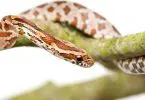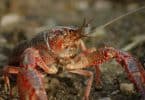Who ddoesn’twant to cuddle their pet? But the question is that Are Reptiles Safe To Kiss And Hug? We heard a lot about the inflation in the medical cases in reptile owners. When we traced down into the details, it showed that some particular conditions are more common in reptile owners. The reason discovered was careless physical contact.
So, in the midst of all this, I decided to guide people to cuddle with their turtle? Is it safe, or can they make it safer in any way possible? What are the potential threats and their solutions? So, let us begin.
Table of Contents
Can You Kiss A Turtle?
No, You should not kiss a turtle! Kissing turtles can cause the transmission of multiple diseases in humans.
Turtles and tortoises are considered social creatures. If you have a turtle, you always know you will have a lifetime friendship with it. Some turtle owners show their affection by touching and hugging them. Some of them express love by kissing them. But this is not appropriate. Kissing a turtle can put you at risk of Salmonella infection. There are other ways you can show them care. Give them proper attention, a healthy diet, and adequate heat. You should take some precautions while dealing with them. It is important to handle your turtle safely to keep your family healthy while enjoying your pet company.
Salmonella is carried by a substantial majority of reptiles, including turtles, in their intestines. As a result, the salmonella bacteria found in the turtle’s body can easily spread to their skin and into their environment. There is a great risk if you kiss a turtle. Salmonella may get into your body and cause infection.
I know it sounds ridiculous, but many of the children who contracted Salmonella from their turtles contracted it by kissing them. Others get ill after putting hatchling (baby) turtles in their mouths. Why? Because newborns and small children eat everything!
A report by the center for disease control in June 2021 published that salmonella cases are rising, and this infection has spread to seventeen districts of America. To control this, people should be careful about how they take care of their pets.
People should not kiss turtles, reptiles, or living animals. Don’t do it! If you do, you could become very ill. Another interesting fact behind it is that turtles don’t enjoy it when you kiss them.
Don’t put your turtles near your mouth or face, and don’t put your hands near your mouth or face until you’ve cleaned your hands after handling your turtles. Also, if you have young children, make sure they don’t.
Salmonella Infection And Its Symptoms
Salmonellosis is an infection caused by the Salmonella bacteria, which usually affects the intestines but can also enter the circulation. It is one of the biggest causes of diarrheal disease, with thousands of cases reported each year in New York State. The majority of incidents occur during the summer months.
Salmonella infection can cause mild to severe diarrhea, stomach cramps, fever, and vomiting in some people. After coming into touch with Salmonella germs, symptoms usually develop one to three days later. The infection is more likely to cause serious and occasionally fatal sickness in young children, the elderly, and individuals with low immune systems. As a result, families with children under the age of five should avoid keeping reptiles or amphibians as pets.
Turtles (along with other reptiles, amphibians, and birds) can carry Salmonella (and other pathogens) that do not make them sick. However, humans can get sick. Just because your turtle seems to be in good health doesn’t mean he or she isn’t carrying Salmonella or other pathogens, so we must always be vigilant.
Key Point:
Some of the symptoms of Salmonellis are as under:
- Diarhhea
- Bloating
- Headache
- Nausea
- Vomiting
All this can lead to severe dehydration. Even in pregnant women it can be lethal to fethus. American guidelines ask for not allowing the direct contact of pregnant ladies and children with turtles.
Why Is It Difficult To Identify Turtles Carrying Salmonella?
It is a great issue that it’s not always possible to identify whether your pet turtle has Salmonella in his or her droppings or on his or her body. Your pet turtle may not appear ill, and it is unlikely that it will tell you, “Dude, I’m not feeling well right now.” While carrying Salmonella and spreading the disease on anything he or she touches, such as your turtle’s tank, tank top, or top hat, your pet turtle may not even feel sick. As a result, touching your turtle and then your mouth can spread Salmonella throughout your digestive tract.
How To Avoid Salmonella Infection From Turtles?
People who are in close contact with turtles should take care of the following things:
Keep Hands Clean:
After handling reptiles or amphibians, don’t touch your mouth until you wash them. Don’t eat or drink around them. You have to wash your hands vigilantly with soap and water after feeding a turtle, touching, caring for your pet, or cleaning its habitat. Handwashing for young children should be supervised by adults. Use can also use a hand sanitizer if water and soap are not readily available.
Before touching our turtles, we should also wash our hands because we can carry bacteria that don’t make us sick but can make them sick. After we wash our hands, we must be very careful to rinse them thoroughly to remove all of the soap. Turtles can be harmed by some soaps and detergents.
Play Safely:
Didn’t kiss them while playing with them and also forbid other people from doing this. Kissing or cuddling turtles can spread Salmonella bacteria to your face and lips, making you sick.
Allowing turtles to freely wander in areas where food is made or stored, such as the kitchen, is not a good idea.
Cleaning Their Habitat:
Don’t bathe turtles or clean their tanks in your kitchen or bathroom. Do this outside, or use a tub or bin that is only for your pet if you do it inside. If bathtubs are used for this, they should be cleaned completely with soap and water afterward. Turtles eat, drink, bathe, urinate and defecate in the same water. This water can be very dirty as it can contain a lot of germs.
Ensure that any surfaces that have come into contact with reptiles or amphibians have been thoroughly cleaned. These surfaces can then be sterilized and washed with a registered disinfectant or sanitizer product if required for further protection. The US Environmental Protection Agency is responsible for regulating disinfectants and sanitizers as pesticides (EPA). You should double-check that the product is labeled for use in the home to kill bacteria on hard, non-porous surfaces you plan to disinfect.
Choose The Right Pet For Your Family
Serious sickness is more likely in children under the age of five, seniors 65 and older, and persons with compromised immune systems. Families with these individuals might consider getting a different pet.
Who Should Not (Particularly) Kiss A Turtle?
Ideally, no one should kiss a turtle. Even your However, following people are at more risk of infection after such physical contact.
- adults of 65 years or older
- infants
- children younger than five years old
- anyone with lowered immunity to infections due to cancer, pregnancy, HIV/AIDS, diabetes, and other diseases.
Harms Of Kissing A Turtle:
Salmonella Infection:
As discussed earlier, turtles can be the source of lethal salmonella infection. It can lead to hospitalization, severe illness, leading to death if not treated promptly. Also, the bacterial resistance in the use of antibiotics in treating this infection has become a burning issue. Bacteria can now easily spread through the bloodstream to various organs.
Not only does an ill turtle, but a normal healthy one has a huge colony of this bacteria on it. These also inhibit their secretions and droppings. Therefore, it is recommended not to allow your pet turtle to share food with you. Wash your hands promptly after contact. Also, pregnant and very elderly or younger individuals avoid direct contact.
Turtles Hate Kissing!
Yes, turtles do not like cuddling. Turtles usually love to live in seclusion and do not want any interruptions from their surrounding. Moreover, you are only a big body for him that can also be labeled as a predator in their memory.
So, if you make it approach towards your mouth, it can take it like eating or sth. This can be really intimidating and can make you fear yourself every time you go towards it. Every pet is not for cuddling, and you just need to understand your little turtle preference, behavior, and nature. It will then be easier for you both.
Effect Pet Human Relation:
Yes, kissing affects your relationship with your pet a lot. As described earlier, turtles do not like kissing in any way. So, doing this will make your pet repel you. This can draw your efforts back to zero if you are trying to train your turtle for something.
Now the point rises, are turtles reluctant to kiss only humans, or do they kiss each other?
Do Turtles Kiss Each Other?
Yes, Turtles kiss each other. However, it is more like touching their mouths to show affection. Usually kissing ritual is at the start of mating, in baby turtles, and for communication.
Turtles at a young age tend to kiss each other more. Or you may say they like to have physical contact with each other to support them and make them strong. It is also a language of communication. Kissing or touching mouths help them communicate their intentions for different purposes. One of these purposes can be mating.
Mating is one of the most common acts when turtles are seen kissing each other. It is also a part of developing a better position and control to do the deed. Moreover, it is also a sign to show dominance and restrict the partner’s motion.
So, you see, kissing in turtles is pretty common. However, they get intimidated when the same is shown by other species.
Which Other Things To Do To Make Your Turtle Feel Special?
It is not necessary only kissing is the only way to show your ultimate affection. You can also opt for other ways. These can not only be better but also more effective, and your pet will love them. Following are some ways that can help you make your pet love you:
- Maintain the temperature, humidity, and other requirements close to its natural habitat.
- Decorate the aquarium for your turtle. You can use multiple plants and other decorations. Provide a place to hide and bask.
- Reward it with its favorite food every time it behaves nicely.
- If you can afford it, give your turtle a bigger tank to live and play with.
Conclusion:
Turtles are super adorable pets. However, cuddling, kissing, and hugging is not something made for them. If you want to have cuddle pets, you better go for furry fellows. Not only do turtles not like being kissed, but also they can pose several health risks to humans. The population with low immunity, i.e., elders or children, and pregnant women are at more risk of developing such infections.
So, you better keep your guards high while keeping a pet turtle. Even if it is just a baby turtle, it can carry a huge colony of microbes, enough to infect you instantly. Therefore, avoid such contact that can transmit microbes. Even after handling the turtle or its objects, wash your hand thoroughly with soap and water.
I hope this article helped you with all the aspects related to kissing behavior in turtles and pet-human relations. If you have any questions, you may comment below or contact us. We would be happy to help.








